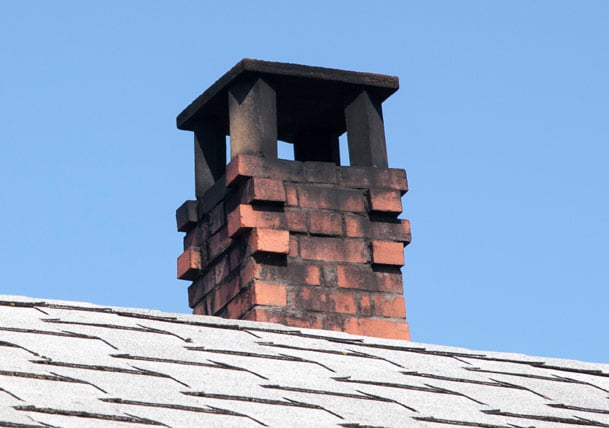Why does my chimney tar up?
If your chimney is building up tar deposits and creosote, your chimney could put your home at a fire risk. When you use wood to light your chimney, the wood is never completely burned. The smoke created by burning wood leaves a black or dark brown substance with a murky odour.
Creosote is found in most burners that use wood but you can reduce the risk of fire by having your flue and chimney cleaned regularly. It also takes a while longer for your chimney to collect tar if you use cleaning logs that contain certain minerals that decrease the possibility of chimney fires.
The type of wood you use to fire up your chimney may also have an effect on how much creosote builds up in your chimney. Unseasoned greenwood is harder to burn and will produce more tar. Hardwood like Oak also burns longer than soft wood such as pine. Any type of wood that is difficult to burn will produce more creosote.
By using processed wood that contain minerals, you reduce the risk of chimney fires since the minerals make tar chip and fall off from your flue and chimney. This will require less clean up throughout the year. It is still advisable to have your chimneys cleaned on a regular basis.
Why does my open fire use so much fuel?
There could be several reasons why your fire uses too much fuel to keep going. One of this could be due to the kind of wood you use to create fire in the chimney. Soft wood like pine can burn faster and you could go through several piles of firewood to produce sufficient heat to arm your home.
Climate conditions could also be a factor. If it is chilly or extremely cold outside, draft could be coming into your home interiors causing you to use up more fuel to maintain comfortable temperatures in the house. Insufficient insulation in your home could also cause temperatures to rise or fall more erratically causing you to use more fuel to keep your surroundings warmer.
Why is my fire not very hot?
If you think your fire is not producing enough heat, then you might have cold air coming through your chimney. A good chimney expert can fix this by installing a fireplace insert that plugs the whole where cold air sucks through. Fireplaces still need air to pass through and it is important that ventilation is still sufficient in your chimney.
A professional provider can help you control the amount of air that goes through your chimney to make it work more effectively. A good chimney service can do a lot to make your home hearth work more efficiently and economically. Have your chimney checked for creosote build-up and leaks.
Ask for advice about the best kind of fuel to use to get sufficient heat in an economical way. The same service can also maintain your chimney, clean it up, and inspect your heating system for fire hazards that could pose a danger to you, your family and assets.
